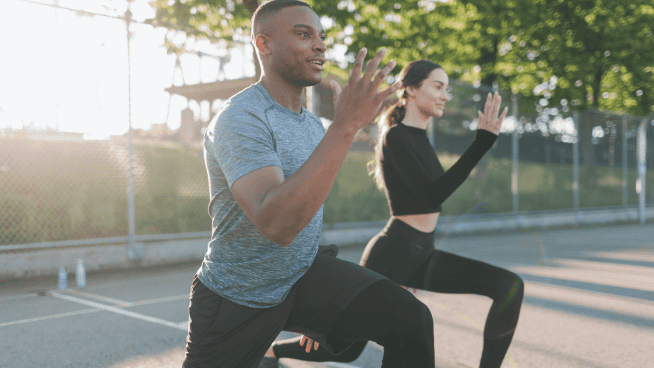Unlock Your Potential: Mental Skills Enhance Performance for High School Volleyball Players
Volleyball is physically and mentally demanding on the court. High school volleyball players often face pressure-packed situations, requiring them to be at their best physically and mentally. To achieve peak performance, it’s crucial to develop mental skills that help you excel on the court and enter the state known as “the Zone” or “Flow.”
The Zone and Flow State
Before diving into mental skills training, let’s understand the Zone and Flow states and why they are essential for volleyball players.
The Zone
The Zone, often called the “mental sweet spot,” is where athletes perform at their peak, with unwavering focus, movement, and confidence. When in the Zone, time is not felt. Players become completely absorbed in the game, free from distractions. It feels like being “in the groove” and performing effortlessly.
Flow State
Flow, created by psychologist Mihaly Csikszentmihalyi, is similar to the Zone but has broader applications across various sports, activities, and life. Flow occurs when you are entirely focused on an activity, losing track of time, feeling a deep sense of satisfaction, and performing at your best.
Mental Training Techniques
Here are some essential mental training techniques to help you excel in volleyball and pave the way to the Zone or Flow state. To strengthen your focus and resilience, consider integrating these two main aspects into your mental training exercises:
Breathing Exercises -Deep, rhythmic breathing can help you stay calm and focused under pressure. Practice controlled breathing during timeouts or between plays.
Pressure Situations Practice– Simulate high-pressure situations during practice sessions. Create scenarios where your team is trailing or tied, and you must execute critical plays.
Training Techniques
Mindful Breathing
How to Do It: Find a quiet place to sit or lie down. Close your eyes and take slow, deep breaths. Focus your attention solely on your breath. Inhale for a count of four, hold for four and exhale for four. As you breathe, let go of any distracting thoughts and bring your intention back to your breath. Do this whenever your mind wanders.
Purpose: Mindful breathing helps reduce anxiety, calm nerves, and enhance concentration during high-pressure moments on the court. It will help you visualize better.
Imagery and Visualization
Visualize yourself performing at your best. Imagine every detail, from serving a perfect ace to making a crucial dig. Visualization enhances confidence and creates a mental blueprint for movement and routine success.
How to Do It: Before practices or matches, find a quiet space. Close your eyes and vividly imagine yourself performing at your best. Visualize specific scenarios, such as a perfect serve or a crucial dig. Pay attention to details like the sounds, sights, and emotions for success.
Purpose: Visualization enhances confidence, boosts self-belief, and mentally prepares you for challenging situations. It develops positivity.
Positive Self-Talk
Replace negative self-talk with positive affirmations. Believing in yourself and your abilities boosts confidence and minimizes self-doubt.
How to Do It: Monitor your inner dialogue during practice and games. When you have negative thoughts, think positive affirmations. For example, replace “I can’t do this” with “I am capable, and I’ve trained for this.”
Purpose: Positive self-talk boosts self-confidence, minimizes self-doubt, and maintains a constructive mindset during adversity. It is essential for goal setting.
Goal Setting and Mental Imagery
Set clear, achievable goals for yourself and your team. When you have goals, you have a sense of purpose, direction, and motivation. Helping you stay focused during matches.
How to Do It: Set specific performance goals for each practice or match. For instance, you may aim to achieve a certain percentage of successful passes or serves. Before the game, visualize yourself achieving these goals successfully.
Purpose: Goal setting combined with mental imagery keeps you focused, motivates you to strive for improvement, and can minimize mistakes.
Coping with Mistakes
Embrace Failure as Learning. Understand that mistakes and failures are part of the game. Instead of dwelling on them, use them as opportunities for growth. Analyze and understand what went wrong so you can improve. Keep emotions in check. Avoid getting overwhelmed by frustration or anger, as these emotions hinder performance.
How to Do It: Practice letting go of mistakes quickly. When you make an error during practice or in the game, consciously acknowledge it, accept it, and then shift your focus to the next play. Avoid dwelling on past mistakes.
Purpose: This exercise helps you build resilience and prevents one mistake from affecting your performance in subsequent plays. It will help avoid developing pressure, stress, and fear. Don’t focus on your mistakes during the game; otherwise, they will focus on you. If you make a mistake, let it go. Don’t let mistakes intimidate you. Instead, get motivated. Think about how you will dig or spike the ball perfectly next time. This is an essential aspect of sport.
Pressure Situations Simulation
Visualization can build confidence and prepare you mentally for high-pressure scenarios.
Practice visualization techniques to see yourself successfully handling pressure situations. Learn stress-reduction techniques such as deep breathing and progressive muscle relaxation. Managing anxiety and pressure is vital for staying composed in high-stress situations.
How to Do It: Exposing yourself to situations before they happen enhances reactivity and relaxation. Preexposure creates less fear and stress in the future. During practice, recreate high-pressure situations. For example, simulate a game-winning serve and put yourself in that scenario. Practice your mental routines and strategies for staying composed under pressure.
Purpose: Simulations help you become accustomed to and more confident in dealing with critical moments during games.
Competitive Breathing
How to Do It: During practice games, intentionally elevate your heart rate through physical exertion (e.g., sprints, jumping jacks) and then practice calming your breath and heart rate quickly through controlled breathing. This mimics the stress-response-recovery cycle in games.
Purpose: Competitive breathing helps you manage stress and recover mentally after intense moments on the court.
Mental Rehearsal for Game Plans
Mentally rehearse your game strategy and actions. This prepares you for different scenarios, allowing you to make split-second decisions effectively.
How to Do It: Mentally rehearse your team’s game plan and strategies before matches. Imagine yourself executing plays flawlessly and making correct decisions on the court.
Purpose: Mental rehearsal reinforces your understanding of the game plan, boosts confidence, and helps you make quicker decisions during matches.
Some other aspects that help improve mental skills and enter the Zone.
Physical Fitness
Good physical shape and stamina ensure that you have the energy and endurance needed to sustain high-level performance throughout a game or match. Fatigue can be a significant detractor from Flow as it can lead to lapses in concentration and reduced physical capabilities.
Concentration
Train your ability to stay focused on the game. Block out distractions and maintain unwavering attention to the task at hand.
Mindfulness
Practice mindfulness techniques to stay present and fully engaged in the game. Mindfulness can help you enter the Zone by reducing distractions and enhancing concentration. This helps to stay present. Incorporate mindfulness meditation into your training. It can improve your ability to remain present, enhance self-awareness, and reduce performance anxiety.
Pre-serve Routine: Create a consistent pre-serve routine that helps you reach the right mental state before every serve or receive. This routine can include deep breaths, positive self-talk, or visualizing a successful play.
Adaptability
Circumstances on the court are highly variable. Therefore, develop the ability to adapt to change physically, mentally, and emotionally. Whether adjusting to the opponent’s tactics or coping with a string of unfortunate events, being adaptable to adjust and change will make a significant difference that can lead to a W.
Team Communication
Effective communication with teammates fosters trust and cohesion. A cohesive team is likelier to enter the Zone together, as the energy and focus are shared.
Enjoy the Game
Remember to have fun and enjoy the process. Passion for the sport can naturally lead you into the Zone or Flow state.
It’s All About Balance
It’s essential to strike a balance because balance is where you get better, stronger, and improve the most. Balance is the key to opening the door to the Zone and Flow. For example, physical fitness is critical to boosting performance. However, overexertion or over-training forces performance, diminishing your results and taking you out of the Zone Flow state. Flow often occurs when the challenge level matches your skill level. Forcing performance by trying too hard can disrupt that balance. Trusting your training, focusing on the process, and letting your skills flow naturally is essential.
Recommended Reading
Instant Strength to run faster, jump higher, enhance reflexes, and boost agility.
Balanced Body to develop alignment, mobility, stability, and flexibility.
Eat to Win to develop the nutrition of a champion.
Blended Bliss to learn how to create delicious and healthy smoothies for after practice and games.
Subscribe to my YouTube channel, Balanced Body, to learn secrets, methods, and training tips. Balance is the key to maximizing your performance
RECOMMENDED FOR YOU
MOST POPULAR
Unlock Your Potential: Mental Skills Enhance Performance for High School Volleyball Players
Volleyball is physically and mentally demanding on the court. High school volleyball players often face pressure-packed situations, requiring them to be at their best physically and mentally. To achieve peak performance, it’s crucial to develop mental skills that help you excel on the court and enter the state known as “the Zone” or “Flow.”
The Zone and Flow State
Before diving into mental skills training, let’s understand the Zone and Flow states and why they are essential for volleyball players.
The Zone
The Zone, often called the “mental sweet spot,” is where athletes perform at their peak, with unwavering focus, movement, and confidence. When in the Zone, time is not felt. Players become completely absorbed in the game, free from distractions. It feels like being “in the groove” and performing effortlessly.
Flow State
Flow, created by psychologist Mihaly Csikszentmihalyi, is similar to the Zone but has broader applications across various sports, activities, and life. Flow occurs when you are entirely focused on an activity, losing track of time, feeling a deep sense of satisfaction, and performing at your best.
Mental Training Techniques
Here are some essential mental training techniques to help you excel in volleyball and pave the way to the Zone or Flow state. To strengthen your focus and resilience, consider integrating these two main aspects into your mental training exercises:
Breathing Exercises -Deep, rhythmic breathing can help you stay calm and focused under pressure. Practice controlled breathing during timeouts or between plays.
Pressure Situations Practice– Simulate high-pressure situations during practice sessions. Create scenarios where your team is trailing or tied, and you must execute critical plays.
Training Techniques
Mindful Breathing
How to Do It: Find a quiet place to sit or lie down. Close your eyes and take slow, deep breaths. Focus your attention solely on your breath. Inhale for a count of four, hold for four and exhale for four. As you breathe, let go of any distracting thoughts and bring your intention back to your breath. Do this whenever your mind wanders.
Purpose: Mindful breathing helps reduce anxiety, calm nerves, and enhance concentration during high-pressure moments on the court. It will help you visualize better.
Imagery and Visualization
Visualize yourself performing at your best. Imagine every detail, from serving a perfect ace to making a crucial dig. Visualization enhances confidence and creates a mental blueprint for movement and routine success.
How to Do It: Before practices or matches, find a quiet space. Close your eyes and vividly imagine yourself performing at your best. Visualize specific scenarios, such as a perfect serve or a crucial dig. Pay attention to details like the sounds, sights, and emotions for success.
Purpose: Visualization enhances confidence, boosts self-belief, and mentally prepares you for challenging situations. It develops positivity.
Positive Self-Talk
Replace negative self-talk with positive affirmations. Believing in yourself and your abilities boosts confidence and minimizes self-doubt.
How to Do It: Monitor your inner dialogue during practice and games. When you have negative thoughts, think positive affirmations. For example, replace “I can’t do this” with “I am capable, and I’ve trained for this.”
Purpose: Positive self-talk boosts self-confidence, minimizes self-doubt, and maintains a constructive mindset during adversity. It is essential for goal setting.
Goal Setting and Mental Imagery
Set clear, achievable goals for yourself and your team. When you have goals, you have a sense of purpose, direction, and motivation. Helping you stay focused during matches.
How to Do It: Set specific performance goals for each practice or match. For instance, you may aim to achieve a certain percentage of successful passes or serves. Before the game, visualize yourself achieving these goals successfully.
Purpose: Goal setting combined with mental imagery keeps you focused, motivates you to strive for improvement, and can minimize mistakes.
Coping with Mistakes
Embrace Failure as Learning. Understand that mistakes and failures are part of the game. Instead of dwelling on them, use them as opportunities for growth. Analyze and understand what went wrong so you can improve. Keep emotions in check. Avoid getting overwhelmed by frustration or anger, as these emotions hinder performance.
How to Do It: Practice letting go of mistakes quickly. When you make an error during practice or in the game, consciously acknowledge it, accept it, and then shift your focus to the next play. Avoid dwelling on past mistakes.
Purpose: This exercise helps you build resilience and prevents one mistake from affecting your performance in subsequent plays. It will help avoid developing pressure, stress, and fear. Don’t focus on your mistakes during the game; otherwise, they will focus on you. If you make a mistake, let it go. Don’t let mistakes intimidate you. Instead, get motivated. Think about how you will dig or spike the ball perfectly next time. This is an essential aspect of sport.
Pressure Situations Simulation
Visualization can build confidence and prepare you mentally for high-pressure scenarios.
Practice visualization techniques to see yourself successfully handling pressure situations. Learn stress-reduction techniques such as deep breathing and progressive muscle relaxation. Managing anxiety and pressure is vital for staying composed in high-stress situations.
How to Do It: Exposing yourself to situations before they happen enhances reactivity and relaxation. Preexposure creates less fear and stress in the future. During practice, recreate high-pressure situations. For example, simulate a game-winning serve and put yourself in that scenario. Practice your mental routines and strategies for staying composed under pressure.
Purpose: Simulations help you become accustomed to and more confident in dealing with critical moments during games.
Competitive Breathing
How to Do It: During practice games, intentionally elevate your heart rate through physical exertion (e.g., sprints, jumping jacks) and then practice calming your breath and heart rate quickly through controlled breathing. This mimics the stress-response-recovery cycle in games.
Purpose: Competitive breathing helps you manage stress and recover mentally after intense moments on the court.
Mental Rehearsal for Game Plans
Mentally rehearse your game strategy and actions. This prepares you for different scenarios, allowing you to make split-second decisions effectively.
How to Do It: Mentally rehearse your team’s game plan and strategies before matches. Imagine yourself executing plays flawlessly and making correct decisions on the court.
Purpose: Mental rehearsal reinforces your understanding of the game plan, boosts confidence, and helps you make quicker decisions during matches.
Some other aspects that help improve mental skills and enter the Zone.
Physical Fitness
Good physical shape and stamina ensure that you have the energy and endurance needed to sustain high-level performance throughout a game or match. Fatigue can be a significant detractor from Flow as it can lead to lapses in concentration and reduced physical capabilities.
Concentration
Train your ability to stay focused on the game. Block out distractions and maintain unwavering attention to the task at hand.
Mindfulness
Practice mindfulness techniques to stay present and fully engaged in the game. Mindfulness can help you enter the Zone by reducing distractions and enhancing concentration. This helps to stay present. Incorporate mindfulness meditation into your training. It can improve your ability to remain present, enhance self-awareness, and reduce performance anxiety.
Pre-serve Routine: Create a consistent pre-serve routine that helps you reach the right mental state before every serve or receive. This routine can include deep breaths, positive self-talk, or visualizing a successful play.
Adaptability
Circumstances on the court are highly variable. Therefore, develop the ability to adapt to change physically, mentally, and emotionally. Whether adjusting to the opponent’s tactics or coping with a string of unfortunate events, being adaptable to adjust and change will make a significant difference that can lead to a W.
Team Communication
Effective communication with teammates fosters trust and cohesion. A cohesive team is likelier to enter the Zone together, as the energy and focus are shared.
Enjoy the Game
Remember to have fun and enjoy the process. Passion for the sport can naturally lead you into the Zone or Flow state.
It’s All About Balance
It’s essential to strike a balance because balance is where you get better, stronger, and improve the most. Balance is the key to opening the door to the Zone and Flow. For example, physical fitness is critical to boosting performance. However, overexertion or over-training forces performance, diminishing your results and taking you out of the Zone Flow state. Flow often occurs when the challenge level matches your skill level. Forcing performance by trying too hard can disrupt that balance. Trusting your training, focusing on the process, and letting your skills flow naturally is essential.
Recommended Reading
Instant Strength to run faster, jump higher, enhance reflexes, and boost agility.
Balanced Body to develop alignment, mobility, stability, and flexibility.
Eat to Win to develop the nutrition of a champion.
Blended Bliss to learn how to create delicious and healthy smoothies for after practice and games.
Subscribe to my YouTube channel, Balanced Body, to learn secrets, methods, and training tips. Balance is the key to maximizing your performance










